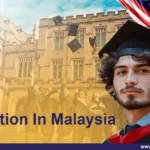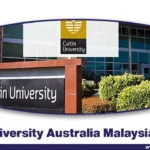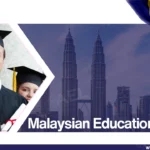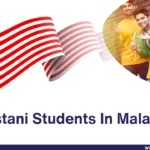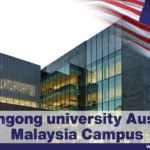Malaysia’s multicultural education system, rooted in its diverse population of Malays, Chinese, Indians, and indigenous groups, offers a unique learning environment for international students. For Pakistani students, Malaysia is a top destination due to its affordable, world-class education, Islamic cultural elements, and inclusive society. Malaysian universities foster cultural understanding, global competencies, and career success. This comprehensive guide explores the benefits of multicultural education in Malaysia, how Pakistani students can adapt, and how AEL Consultants can support your journey in 2026.
Why Choose Malaysia for Multicultural Education?
Malaysia’s education system stands out for its embrace of cultural diversity, attracting students from across the globe, including Pakistan. The country’s rich mix of ethnicities creates a vibrant, inclusive atmosphere that enhances learning and personal growth. For Pakistani students, Malaysia offers religious and cultural familiarity, with halal food, mosques, and Muslim-friendly practices, alongside globally recognized degrees at affordable costs.
Key reasons to study in Malaysia include:
- Cultural Diversity: Interaction with Malays, Chinese, Indians, and indigenous groups fosters global perspectives.
- Affordable Education: Tuition fees are 50–70% lower than in Western countries.
- Islamic Environment: Muslim-friendly facilities resonate with Pakistani students.
- Global Recognition: Degrees from top universities are valued worldwide.
- Simple Visa Process: Streamlined applications for international students.
To compare with other destinations, explore studying in China or UK student visa costs.
The Importance of Multicultural Education in Malaysia
Multicultural education in Malaysia is vital for fostering national unity and preparing students for global success. By exposing students to diverse perspectives, it cultivates open-mindedness, empathy, and adaptability—skills essential in today’s interconnected world.
Promoting National Unity
Malaysia’s education policies, guided by principles like Rukun Negara, emphasize inclusivity to unite diverse ethnic groups. Schools and universities encourage cultural exchange through events, bilingual education, and shared activities, reducing prejudice and strengthening social bonds.
Global Competencies
Exposure to diverse cultures equips students with cross-cultural communication and critical thinking skills. Employers value these competencies, making Malaysian graduates competitive in international job markets. For insights into Malaysia’s education system, visit Malaysian education system.
What Makes Malaysia’s Learning Environment Unique?
Malaysia’s multicultural education system integrates diverse ethnic, cultural, and religious heritages into its curriculum and campus life. This approach creates a dynamic learning environment that prepares students for global interactions.
Diverse Curriculum
Primary and secondary schools offer lessons in Malay, English, Mandarin, and Tamil, reflecting Malaysia’s linguistic diversity. Universities incorporate cultural studies and host events like Hari Raya, Chinese New Year, and Deepavali, promoting mutual understanding among students.
Inclusive Campus Life
Universities organize cultural clubs, festivals, and exchange programs to foster inclusivity. These activities help students from different backgrounds connect, creating a sense of belonging and enhancing their educational experience.
| Aspect | Description | Benefit |
|---|---|---|
| Curriculum | Multilingual education in Malay, English, Mandarin, Tamil | Linguistic diversity and cultural awareness |
| Campus Events | Festivals like Hari Raya, Deepavali | Social bonding and cultural exposure |
| Cultural Clubs | Student-led groups for ethnic communities | Community building and inclusivity |
Benefits of Studying in a Multicultural Environment
Malaysia’s multicultural learning environment offers numerous advantages for Pakistani students, enhancing both academic and professional outcomes.
Enhanced Critical Thinking
Interacting with diverse perspectives encourages students to question assumptions and develop innovative solutions. This skill is valuable in fields like engineering, business, and IT, where creative problem-solving is essential.
Improved Communication Skills
Navigating Malaysia’s multilingual society hones cross-cultural communication abilities. Students learn to adapt to different communication styles, a critical asset in global workplaces.
Global Career Readiness
Employers seek candidates with cultural sensitivity and adaptability. Malaysia’s diverse environment prepares students for international roles in multinational corporations or startups.
For career-focused programs, explore STEM programs in China.
How Pakistani Students Can Adapt to Malaysia’s Diverse Culture
Adapting to Malaysia’s multicultural environment requires cultural sensitivity, openness, and proactive engagement. Pakistani students can thrive by embracing the following strategies.
Embrace Cultural Diversity
- Attend cultural festivals like Hari Raya, Chinese New Year, and Deepavali to connect with peers.
- Join student clubs or associations, including Pakistani student groups, to build networks.
- Try local cuisines and explore Malaysia’s diverse regions for a richer experience.
Learn Local Customs
- Remove shoes before entering homes, a common practice in Malay and Indian households.
- Dress modestly, especially at religious sites, to respect local norms.
- Learn basic Malay phrases to enhance daily interactions and show respect.
Develop Communication Skills
Engage in discussions with students from different backgrounds to build emotional intelligence and adaptability. University language programs can improve English or Malay proficiency, aiding academic and social integration.
For more adaptation tips, explore student life in Malaysia.

Success Stories of Pakistani Students in Malaysia
Malaysia’s multicultural education system has empowered many Pakistani students to achieve academic and professional success. Below are inspiring examples.
Adeel’s Engineering Journey
Adeel, from Karachi, pursued mechanical engineering at Monash University Malaysia. Collaborating with diverse peers honed his problem-solving skills. Today, he works as a mechanical engineer at a multinational firm in Kuala Lumpur, crediting Malaysia’s inclusive environment for his growth.
Sara’s Business Breakthrough
Sara, from Lahore, faced initial language barriers at Taylor’s University. University language programs and cultural clubs helped her adapt. She now works in marketing at an international firm, leveraging her cross-cultural communication skills.
Hamza’s Tech Venture
Hamza, from Islamabad, studied IT at Asia Pacific University. Exposure to Malaysia’s tech ecosystem and diverse ideas inspired him to launch an AI startup, now serving clients across Southeast Asia.
| Student | Field | Achievement |
|---|---|---|
| Adeel | Engineering | Mechanical engineer at multinational firm |
| Sara | Business | Marketing role at international firm |
| Hamza | IT | Founder of AI startup |
Practical Tips for Pakistani Students in Malaysia
To maximize their experience, Pakistani students should plan finances, engage in campus life, and seek support services.
Financial Planning
Malaysia is affordable, with tuition fees ranging from MYR 20,000–40,000 annually and living costs at MYR 1,500–2,500 monthly. Scholarships like the Malaysian International Scholarship (MIS) and university-specific awards reduce costs. Explore scholarship opportunities in Malaysia.
Campus Engagement
Join cultural clubs, attend orientation programs, and participate in festivals to build connections and feel integrated. Pakistani student associations offer community support and networking opportunities.
Support Services
Universities provide international student offices, language programs, and counseling services to ease cultural and academic transitions.
How AEL Consultants Can Help
AEL Consultants (AELC) specializes in guiding Pakistani students through the study abroad process, ensuring a seamless transition to Malaysia’s multicultural environment.
Services Offered
- University and program selection tailored to academic and career goals.
- Visa application support, including document preparation.
- Scholarship guidance to secure financial aid.
- Pre-departure and cultural adaptation assistance.
- Post-arrival support for accommodation and integration.
For visa assistance, refer to visa processes for other countries.
Conclusion
Multicultural education in Malaysia offers Pakistani students a transformative learning experience in 2026. By fostering cultural understanding, critical thinking, and global competencies, Malaysia’s diverse environment prepares students for academic and professional success. Affordable tuition, Islamic cultural elements, and inclusive campuses make it an ideal destination. AEL Consultants provides expert guidance to navigate university applications, visas, and cultural adaptation, ensuring a smooth journey. Embrace Malaysia’s vibrant multicultural education system and start your path to a global future today.


